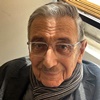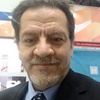High-level diplomatic efforts to stop the fighting in Syria yielded mixed results on Saturday as President Bashar al-Assad shut the door on any immediate negotiations with the opposition and escalated a new military assault on the city of Idlib.
Mr. Assad told the United Nations envoy Kofi Annan that such talks would be fruitless as long as “terrorist groups” were operating in the country.
“No political dialogue or political activity can succeed while there are armed terrorist groups operating and spreading chaos and instability,” the state news agency, SANA, quoted Mr. Assad as saying.
Mr. Annan, a former United Nations secretary general, was sent to Damascus by the United Nations and the Arab League to try to negotiate a cease-fire. In a statement, he described the talks as “candid and comprehensive,” and said he had also met with opposition leaders and young activists. He was due to meet with Mr. Assad again on Sunday.
In a glimmer of progress, an Arab League meeting in Cairo yielded an agreement with Russia that Arab countries hoped could lead to a new United Nations Security Council resolution on Syria.
The Arab states dropped calls for Mr. Assad to hand over power to his deputy, and endorsed a five-point plan that calls for a halt to the violence on both sides and a dialogue between the Syrian government and its opponents, The Associated Press reported.
The agreement was seen by Arab ministers as a path toward a Security Council resolution that would be acceptable to Russia, Syria’s main international backer.
Russia and China vetoed a Security Council resolution last month that would have backed an Arab League plan to end the violence.
Russia had initially objected to the proposal because it feared that the measure could open the door to foreign military intervention or force Mr. Assad’s ouster. Even after Arab and Western countries dropped references to Mr. Assad’s ceding power and added language barring outside military intervention, Russia still objected that the resolution did not sufficiently blame the opposition for the violence, and that its demand for the government to withdraw its military forces was unrealistic, given that the opposition now included armed rebels.
The Russian foreign minister, Sergey V. Lavrov, in Cairo on Saturday, took heat for that veto. At one point, the Saudi representative bluntly blamed Russia for allowing the killing to continue.
“We must stop issuing hollow resolutions and taking spineless positions,” the Saudi foreign minister, Prince Saud al-Faisal, said, according to Reuters. “The position of those countries which thwarted the U.N. Security Council resolution and voted against the resolution of the General Assembly gave the Syrian regime a license to extend its brutal practices against the Syrian people.”
Mr. Lavrov insisted that Russia was “not protecting any regimes.”
“We protect international law,” he said. “The immediate task now is to end violence, irrespective of the source.”
In what appeared to be a jab aimed mainly at Saudi Arabia, he suggested that Russia’s stance would benefit autocratic Arab countries worried about their own restive populations. “We certainly believe that all outside actors must be extremely careful in addressing problems which your countries are facing,” he said, according to The A.P.
Saudi Arabia, despite its own dismal human rights record and the central role it played in repressing a popular uprising in Bahrain, has led the charge to topple Mr. Assad, repeatedly invoking his brutality.
The agreement, however, did nothing to halt the violence in the nearly year-old conflict, whose death toll has risen sharply in recent weeks. Activists and journalists reported clashes between opposition fighters and the army in Idlib, where they said a new government offensive was under way.
A team of A.P. reporters said government tanks that had encircled the town shelled it for several hours on Saturday. The journalists saw wounded opposition fighters being taken to clinics and a number of families fleeing the town.
An activist in Idlib, who reported seeing “heavy smoke,” said that at least three buildings had partly collapsed under the shelling on the western side of town. Another activist in the suburbs said relatives who fled spoke of abandoned neighborhoods.
“We’re expecting something like Baba Amr,” the activist said, referring to the neighborhood in the city of Homs that was the site of a monthlong siege by government troops trying to rout opposition fighters from a stronghold.
Hwaida Saad contributed reporting.
![]() NYT
NYT

 RLS
RLS



